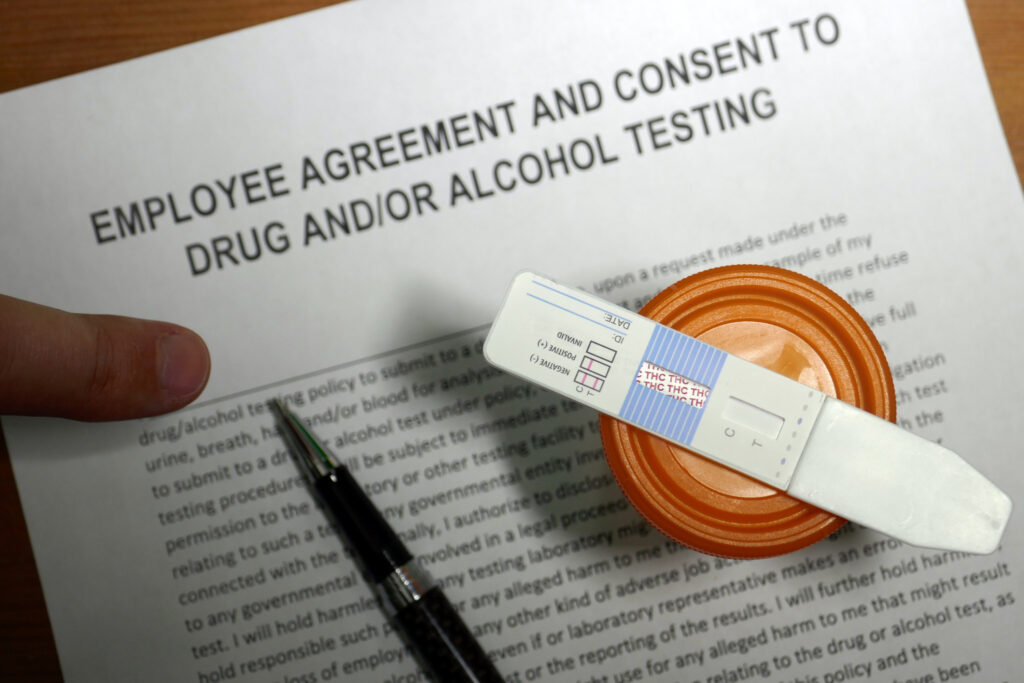Drug testing rules should be updated to reflect modern realities
So much of our life as professional drivers goes by routinely.
How we start our day, the foods we eat, the way we drive — it is all fairly similar from one day to the next. Until it isn’t.

Imagine this. You’re a hard-working driver paying attention to the details. Owning your truck is the result of a childhood dream, and you are continuing to better yourself by taking courses to get your logistics designation. Deliver the load, study, reload, refresh and repeat. Schooling and trucking is a long process. A longtime companion has passed away, leaving a pothole in your life.
A lot of blood, sweat and tears over many months has brought you to this point. A final exam on your time off. You’ve done everything possible to be prepared. A good night’s rest is the final step to prepare.
You take a little sleep aid to help with that. Nothing unusual or potent. Just a supposedly safe non-THC pill purchased at the same store where you buy your skin cream.
The next morning you ace your exam and celebrate. Nothing crazy, because in two days you’re going back on the road. You show up for work and are told to go for a random drug test. No worries. You do it and get out onto the highway. Routine.
Positive test
Several thousand kilometers later, you get a call. Long after the test. Not days — weeks. Two weeks of routine.
You’re told you have violated the drug policy.
Do you know what to do? No. This isn’t part of the routine. You have taken your job seriously and never crossed the line and knowingly taken drugs. Trucking is your livelihood.
The company will know what you should do, right? Maybe large companies have a better record on how to deal with this, but at smaller companies it isn’t so easy.
So, what do you do? I’m asking you, the owner-operator, the company director, the HR professional. Let’s say you’re in Saskatchewan. Where do you find DOT-certified drug special access program (SAP)? You drive cross-border so it can’t just be anyone. How soon can you get in to see them? Is there a cost? If you’re in management and the driver is in the U.S., you must now send a driver to recover the truck.
I’ll give you a hint. In Western Canada there’s very few DOT-certified SAPs. This driver has years of service and a great record. As the fleet manager, you want them back ASAP. The driver, an owner-operator, is bleeding money with no end in sight.
Black and white
In the past I have taken a black and white view regarding drug use. I hate drugs, legal or otherwise. Always have. It’s kind of ironic that I now need drugs to stay alive. Karma, I guess. I was hard on my children regarding illegal drugs, and even alcohol. We could drink, but never to excess.
In the ’90s when I was running a trucking division I had to go through supervisory training for drugs and alcohol. I embraced a zero-tolerance policy.
A son used to tout the benefits of the organic drug marijuana and I acknowledged there could be medical benefits. But it wasn’t legal, so therefore bad.
Now in Canada it’s legal. Has been for six years.
Here’s what disturbs me: cocaine in undetectable in less than three days, unless you get a hair test. Marijuana is detectable for three months. Cocaine is highly addictive. How about marijuana? It’s not addictive in the same way.
Is a driver using CBN (cannabinol) as a sleep aid two days before returning to work a danger? Not a chance.
Is a driver using cocaine two days before returning to work a danger? Absolutely!
Many employees or drivers that are in a drug tested work environment are now using cocaine and alcohol as their drug of choice. It’s far easier to avoid a failed test. The effects are also far scarier in the long run.
The DOT return-to-work program is so convoluted that many drivers opt not to drive anymore. In North America there are more than 100,000 drivers that just gave up trying to get reinstated after a positive test.
We need drug testing that reflects impairment.
We need drug rules in trucking that reflect what’s legal.
Have your say
This is a moderated forum. Comments will no longer be published unless they are accompanied by a first and last name and a verifiable email address. (Today's Trucking will not publish or share the email address.) Profane language and content deemed to be libelous, racist, or threatening in nature will not be published under any circumstances.
Agree 100%